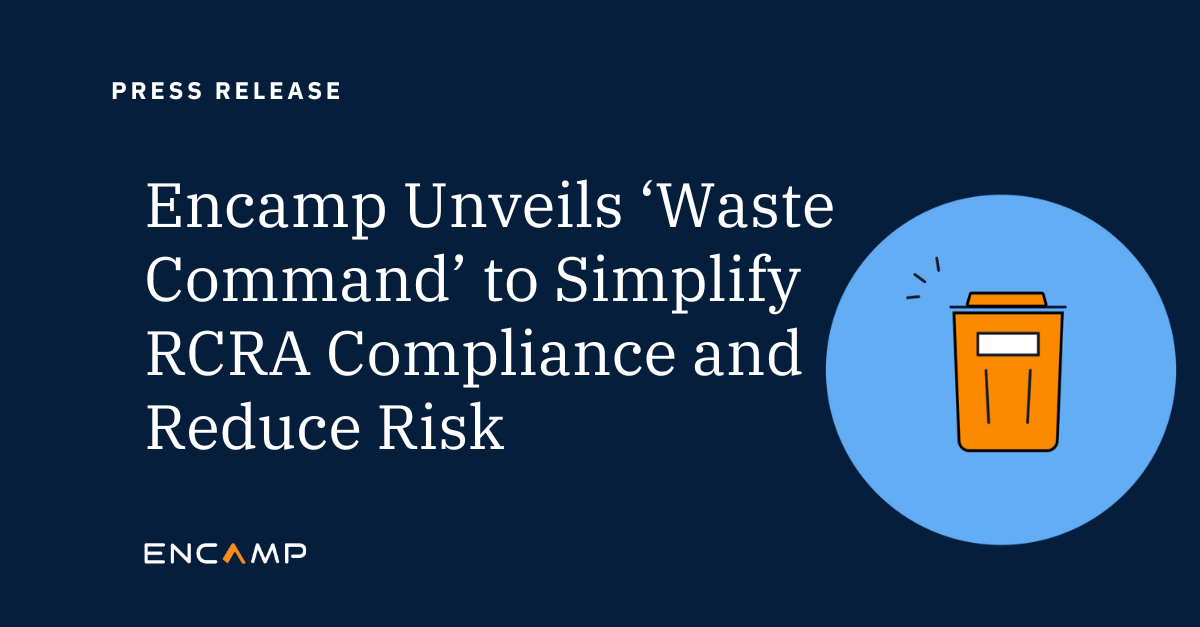Most times, EHS non-compliance violations lead to financial penalties and perhaps an EPA Notice of Violation… not to potential charges from a state’s Attorney General.
But given the massive chemical explosion and fire at its manufacturing plant in Rockton, Illinois, on June 14, 2021, Chemtool Incorporated will most likely get more than just a fine from the Illinois Attorney General. (No charges had been finalized as of this blog post.)
The good news was that no employees, firefighters or people living near the Rockton facility were hurt or killed in the explosion or resulting fire, although residents within a 1-mile radius of the plant were evacuated within minutes of the blast.
Residents throughout a larger radius were also instructed to wear masks for several days afterwards as protection from airborne chemical particles. (The foam used to fight the fire triggered additional EHS precautions, since it included per- and polyfluoroalkyl substances, or PFAS, that have been linked to cancer and organ damage in humans.)
The legal and regulatory consequences of Rockton
In fairness to Chemtool, the cause of the Rockton plant explosion was determined to be accidental and the fault of an independent contractor. However, the Illinois Environmental Protection Agency (IEPA) still requested the Illinois Attorney General to pursue legal action against the company regarding the explosion and related EHS transgressions.
The reasons the IEPA cited for the legal move were “Violations of the Illinois Environmental Protection Act and Illinois Pollution Control Board regulations by Chemtool for causing or allowing the release of pollution into the atmosphere.”
Regarding the “pollution,” U.S. EPA officials completed air monitoring and sampling in the Rockton area and vowed to assist IEPA staff as they continued to monitor air and water conditions. Even the U.S. Chemical Safety and Hazard Investigation Board (CSB) sent two senior staff members to Rockton to work with the EPA as well as Federal, State and local emergency responders. The CSB’s aim was to gather information from the incident site and make a recommendation on “how best to proceed” for EHS cleanup.
Officials from Chemtool and its parent company Lubrizol Additives confirmed the facility stored dozens of hazardous chemicals at the Rockton site to manufacture industrial greases and lubricants. Among the materials were zinc, sulfuric acid, nitrogen, lead, and ethylene glycol, also known as antifreeze. The officials further confirmed the Rockton plant actively participated in the Tier II reporting system for EPCRA and other EHS regulations (likely CAA, CWA, and RCRA).
Early legal action
Early-stage legal action by the Illinois Attorney General required Chemtool to “immediately stop the release (of hazardous materials) and provide appropriate documentation” to the IEPA. Such documentation was to include an estimate of the nature and amount of any emissions. At the Rockton plant, sulfuric acid mist, particulate matter and other air contaminants all posed emissions and other EHS concerns.
Associated legal steps from the Illinois AG required Chemtool to develop and implement a work plan to remove any hazardous material from the site — one of the reasons the two CSB staff members were sent to Rockton. Chemtool was additionally required to address other EHS and environmental issues related to the incident.
Along with the Illinois Emergency Management Agency, Chemtool will continue to monitor the plant’s surrounding environment and surveil the air, the bordering Rock River, and any groundwater for contaminants from chemicals in the Rockton facility.
Potential EHS repercussions
In an event like the chemical explosion at Chemtool’s Rockton plant, public health and local communities often pay the greatest costs. So does nature and the environment. But Chemtool itself can also expect to pay significant penalties levied by the Illinois Attorney General, the Illinois EPA, and other EHS agencies.
And safe to say, those penalties won’t be just financial. Other repercussions could potentially affect Chemtool in more sweeping ways.
For example, the company could be saddled with a severe (and costly) administrative burden long after resolution of the Rockton plant event. They could stay on the radar of EHS regulatory agencies for years. And with all the legal actions they can expect for the near future, Chemtool’s legal fees could potentially be in the millions.
In fact, residents living near the Rockton plant filed two lawsuits just weeks after the facility’s explosion. Both lawsuits are seeking compensation from Chemtool for damages.
Any legal fees and settlements, of course, would be on top of the cleanup and construction costs to restore operations at the Rockton site. (Ouch!)
In the scope of business and public relations, Chemtool could also easily lose more than customers. They could also lose shareholders, their reputation in the lubricant industry, and the favorable standing they’ve had as a major employer in the Rockton community.
Let’s hope that doesn’t happen, and that Chemtool can get their Rockton plant back in operation soon.
Transforming the way enterprises stay in compliance
Encamp is on a mission to create a world where good for business can equal good for the environment. We help enterprises transform compliance programs and human processes into a technology-driven system that lays the foundation for accurate and ongoing environmental compliance through a blended method of intelligent high-tech solutions and high-touch expert support.
Tom Bailey
Tom is the Senior Content Writer at Encamp. And like all other Encampers, he’s in tune with the environment and what happens to it. He’s been writing about creative technology solutions for longer than he cares to admit.



